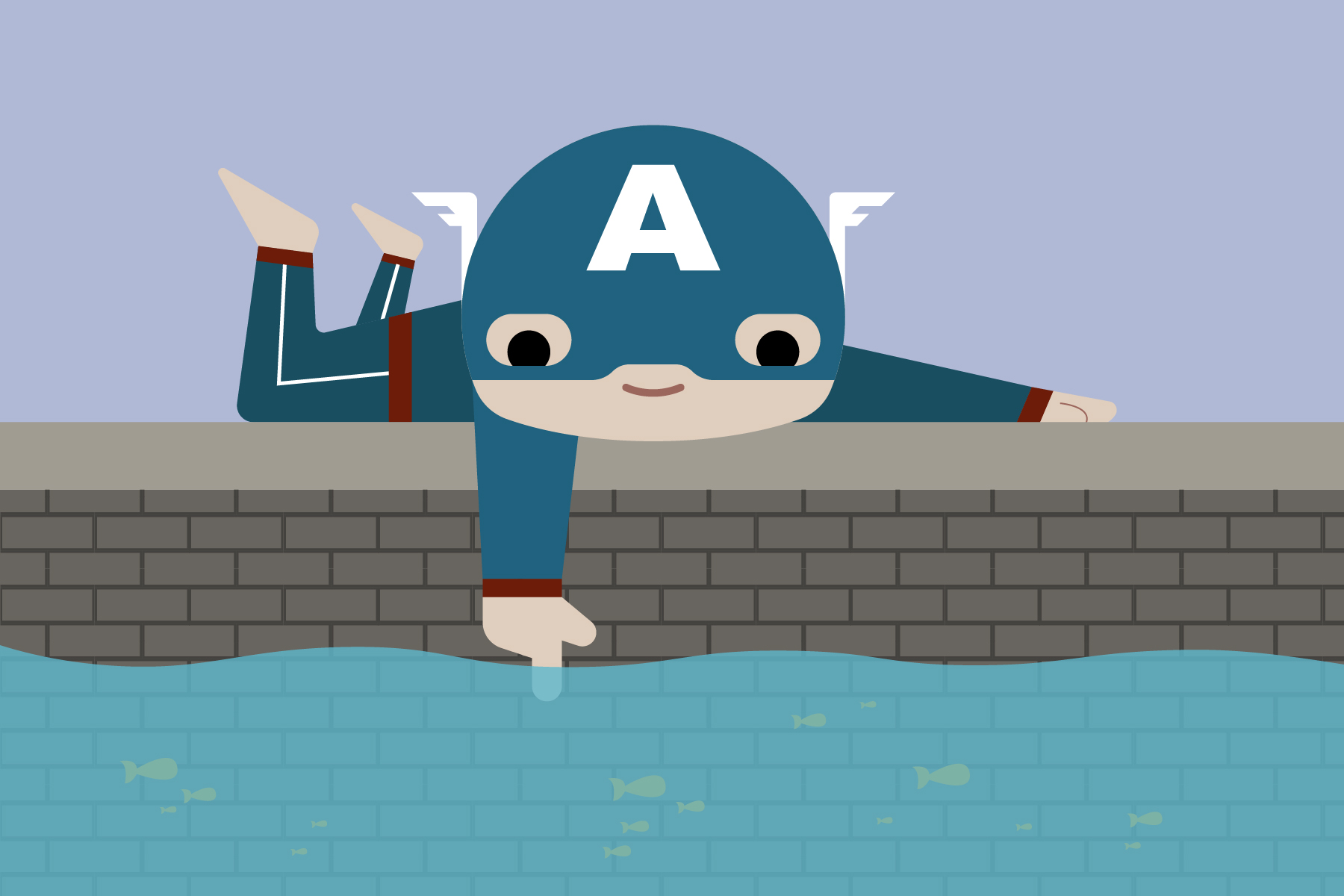“Endgame” could have easily been a film of monotonous battle scenes, seas of expositional dialogue and science-y jargon about time travel — because we all knew there would be time travel — and the occasional pithy comment courtesy of Tony Stark tossed in for good measure. The Avengers *could* have just found the villain, killed him and solved all of their problems.
Well, as you might expect, the Avengers found the villain. And yes, they did kill him. What was surprising, though, was the fact that their problems were far, far from over.
Under the direction of the Russo brothers and complemented by outstanding performances and a few good plot twists, “Avengers: Endgame” is a cinematic beauty (with just a few blemishes) that left me speechless and tearful, waiting desperately through the entirety of the credit reel for an after-credit scene I knew was not coming.
A brief synopsis, for those behind on the times: In “Infinity Wars,” Thanos capital “S” Snapped his fingers and, with the help of the six cosmically powerful Infinity Stones, disintegrated half of all life in the universe into dust. Now, in “Endgame,” the battered and bruised Avengers, with Tony returned and Captain Marvel at their side, have set about tracking down Thanos to defeat him once and for all with the hope of collecting the Stones and reversing the deaths of their loved ones. All they manage to do, however, is finish off the already weak villain, leaving them without purpose, without the Stones and completely out of options.
The movie is about more than just some magic rocks with a propensity for causing a ruckus. It is about the many different ways people deal with loss and heartbreak, the pain of defeat and the realization even superheroes aren’t invincible. But it is also about hope, family, sacrifice and a pursuit for justice even in the face of failure.
Audiences are given the opportunity to see real depth of character as some of our favorite superheroes struggle through the gritty reality of personal loss. Natasha/Black Widow throws herself into her work, pushing herself tirelessly to search for Thanos and find any kind of information that could help the Avengers crawl out of the rubble of their new reality.
Tony retreats to a cabin by a lake, with wife Pepper Potts and an adorable daughter as his chosen companions. Cap runs a therapy group to hide his own feelings of failure under the guise of helping others, Thor becomes a fat, greasy drunk (both a hilarious and pitiful sight) and Hawkeye turns into a sort of Dark Avenger, killing those who kill others in a futile attempt to numb the loss of his entire family after the Snap.
Although audiences love to watch and cheer on their favorite superheroes who are incredibly strong, intelligent and capable men and women, it is refreshing to see them vulnerable and uncertain under that shiny superhero exterior. It establishes them as real people with real fears and doubts, making them accessible to audiences and relatable to those who also struggle with failure, doubt and an uncertain future. Fans love them even more for their desperate attempt to save mankind and, ultimately, for their sacrifice.
Indeed, around the mid-point of the movie, things do not look good for our heroes. But when Ant-Man shows up after spending five Earth-years in the quantum realm (just five minutes for him), things begin to change. Have the Avengers finally found a way out? Can they effectively carry out a “time heist” to reverse the effect of the Infinity Stones, or find them before Thanos does?
Time travel always feels like a cop-out solution in any film, and “Avengers: Endgame” is no exception. They take it and run with it, even challenging traditional time-travel theories commonly expressed in other classics like “Back to the Future.” Although the film’s explanation of time travel and its effects ultimately doesn’t make sense (Bruce Banner explains, “If you travel to the past, the past becomes your future, and your former present becomes the past! Which can’t now be changed by your new future!” … yeah, I don’t get it either), that doesn’t discredit the film from being incredibly entertaining and enjoyable to watch.
Leaving the slower, more melancholy beginning behind them, the group of heroes moves forward with a new sense of purpose. They split up into a chaotic, occasionally sentimental, sometimes funny conglomerate of storylines as they try to recover the Infinity Stones. Although this multi-dimensional, multi-temporal split in the plots between different groups is fascinating to watch, it was also hard to follow. By the time everyone returned to the present from their respective pasts, I wasn’t sure who had gone where and how many Stones had been successfully retrieved.
Although the plot felt a bit messy, Marvel still delivers with an impressive cinematographic structure, combining epic large-scale battles with dozens of your favorite characters with intimate and powerful individual character arcs. Events both large and small from “Avengers: Infinity War” are repeated in “Endgame” for cinematic effect. Someone must die to retrieve the Soul Stone, and yet another attack from Thanos and the Chitauri forces many different groups of talented warriors to band together and fight a common enemy.
The Russo brothers know what fans want and are very smart in giving it to them. One of my favorite scenes in the movie is when a group of female Avengers charge together toward Thanos with the infinity gauntlet. This incredible display of female power and kick-assery, along with the return of the Wakandans, not only made for effective crowd-pleasers but also great additions to the interconnectedness of the MCU and the display of diversity that Marvel is working hard to improve on. An article by Vanity Fair puts it this way: “Had Thanos’ snap wiped out just the dudes, the remaining women would’ve been awfully formidable on their own.” Yes. Yes, they certainly would have.
“Avengers: Endgame” has an unconventional ending that makes it immensely satisfying, in my opinion. Bring your tissues, and check your disbelief at the door in order to fully enjoy the culmination of over a decade’s worth of character development and world-building that has established the Avengers as an international pop-culture phenomenon. If you’re a true Marvel fan, you’ll love it 3000.
















